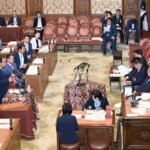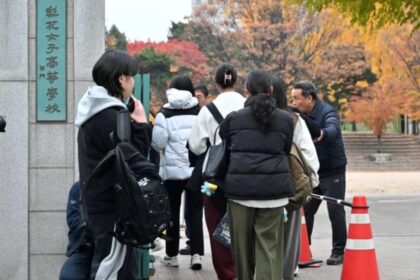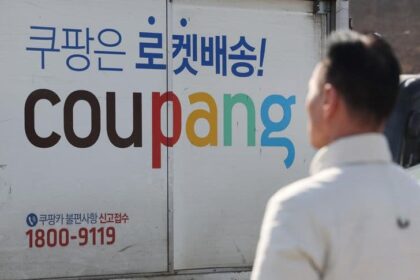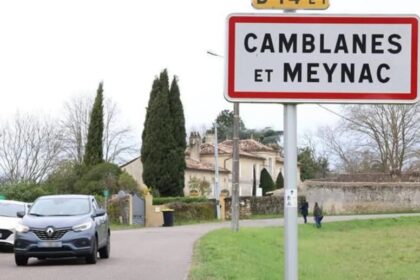Sara Duterte Survives Impeachment: A Turning Point in Philippine Politics
In a dramatic turn of events, the Philippine Senate has voted to archive the impeachment complaint against Vice President Sara Duterte, effectively halting—at least for now—a process that could have ended her political career. This decision, following a Supreme Court ruling that declared the impeachment proceedings unconstitutional, has not only revived Duterte’s political prospects but also reshaped the landscape ahead of the 2028 presidential elections. The saga has exposed deep rifts within the country’s political elite and raised questions about the future direction of Philippine governance and foreign policy.
- Sara Duterte Survives Impeachment: A Turning Point in Philippine Politics
- How Did the Impeachment Unfold?
- Political Fallout: Duterte vs. Marcos and the Rise of Dynastic Politics
- Legal and Constitutional Issues: The Supreme Court’s Role
- Implications for the 2028 Presidential Election
- Reactions from Key Stakeholders
- Broader Significance: What Does This Mean for Philippine Democracy?
- In Summary
How Did the Impeachment Unfold?
The impeachment of Sara Duterte, daughter of former President Rodrigo Duterte, was one of the most contentious political dramas in recent Philippine history. In December 2024, four impeachment complaints were filed against her, citing allegations ranging from constitutional violations and large-scale corruption to an alleged assassination plot against President Ferdinand Marcos Jr., his wife, and the Speaker of the House. The House of Representatives, where Marcos allies hold a slim majority, approved the impeachment on February 5, 2025, sending the case to the Senate for trial.
The charges were serious: misuse of confidential and intelligence funds during her tenure as Vice President and as Secretary of Education, threats against the President, and even involvement in extrajudicial killings. The impeachment process quickly became a flashpoint for the ongoing feud between the Duterte and Marcos families—two dynasties that had joined forces in the 2022 elections but soon fell out over policy differences and personal animosities.
As the Senate prepared to convene as an impeachment court, the Supreme Court intervened. On July 25, 2025, the Court unanimously ruled that the impeachment proceedings violated the constitutional “one-year bar rule,” which prohibits multiple impeachment complaints against the same official within a single year. The Court found that earlier complaints, though dismissed at the committee level, still counted as proceedings, rendering the House’s actions unconstitutional. This ruling effectively blocked the Senate from moving forward with the trial.
Senate Vote: Archiving the Complaint
On August 6, 2025, after hours of heated debate, the Senate voted 19-4, with one abstention, to archive the impeachment articles. The motion, introduced by Senator Rodante Marcoleta, was amended from “dismiss” to “archive” after advice from Senator Alan Peter Cayetano, allowing for the theoretical possibility of revisiting the case if the Supreme Court reverses its decision. However, most legal experts agree that such a reversal is unlikely, and the impeachment is effectively dead until at least February 2026, when the constitutional bar expires.
Senate President Francis Escudero explained that the Senate had no jurisdiction over the case due to the Supreme Court’s ruling. Senators who voted in favor of archiving cited respect for the judiciary and the rule of law, while minority senators argued that the decision was premature and undermined the pursuit of accountability. Senator Vicente Sotto III, a vocal opponent of the motion, declared,
“Archiving the articles of impeachment effectively ends the process. This is a dead motion.”
Despite the controversy, the Senate’s decision has granted Sara Duterte a significant reprieve, allowing her to remain in office and continue her political ascent.
Political Fallout: Duterte vs. Marcos and the Rise of Dynastic Politics
The impeachment saga has laid bare the intense rivalry between the Duterte and Marcos families, both of whom wield immense influence in Philippine politics. In 2022, Sara Duterte and Ferdinand Marcos Jr. ran as a “Uniteam,” leveraging their families’ popularity to secure a landslide victory. However, their alliance quickly unraveled amid disputes over budget allocations, policy priorities, and personal attacks. The feud reached its peak when Rodrigo Duterte, Sara’s father and former president, was arrested and extradited to the International Criminal Court (ICC) in The Hague to face charges related to his brutal war on drugs.
Rodrigo Duterte’s arrest was a seismic event, not only for the Duterte family but for the entire nation. The former president’s war on drugs, which began in 2016, resulted in thousands of deaths and drew international condemnation. His transfer to the ICC was seen by many as a move by the Marcos administration to distance itself from the Duterte legacy and assert its own authority.
Despite these setbacks, the Duterte family has demonstrated remarkable resilience. In the May 2025 midterm elections, candidates endorsed by Sara Duterte won more seats in both chambers of Congress than expected, signaling enduring grassroots support. Rodrigo Duterte, even from ICC detention, managed to win the mayoralty of Davao City, while his sons secured local and congressional positions. This show of strength has reinforced the perception that the Dutertes remain a formidable political force.
Dynastic Politics and Public Opinion
The Philippines has long been characterized by dynastic politics, with powerful families dominating both national and local offices. The impeachment process against Sara Duterte highlighted the extent to which political rivalries and alliances shape the country’s governance. Opinion polls during the proceedings showed a divided public, with some supporting the impeachment as a necessary check on abuse of power, while others viewed it as a politically motivated attack.
Legal experts and political analysts have noted that impeachment in the Philippines is as much a political process as a legal one. Since the restoration of democracy in 1986, only one impeachment—against former Supreme Court Chief Justice Renato Corona in 2012—has resulted in a conviction. Most attempts have ended in deadlock or been derailed by public protests and shifting alliances.
Legal and Constitutional Issues: The Supreme Court’s Role
The Supreme Court’s intervention was pivotal in the outcome of the impeachment case. The Court’s unanimous decision cited the “one-year bar rule,” a constitutional safeguard designed to prevent the abuse of impeachment as a political weapon. According to the Court, the multiple complaints filed against Sara Duterte within a single year violated this provision, rendering the House’s actions unconstitutional.
Court spokesperson Camille Ting explained,
“There is a right way to do the right things at the right time… This unanimous decision has once again upheld the rule of law and reinforced the constitutional limits against abuse of the impeachment process.”
The ruling was immediately executory, meaning the Senate could not proceed with the trial unless the Supreme Court reversed itself on a pending motion for reconsideration. Legal scholars, such as University of the Philippines law professor Barry Gutierrez, have expressed skepticism that the Court would revisit its decision, given the potential for further controversy.
For now, any new impeachment complaint against Sara Duterte must wait until February 6, 2026. This delay gives her ample time to consolidate support and prepare for a likely presidential bid in 2028.
Implications for the 2028 Presidential Election
With President Marcos limited to a single term, the 2028 presidential race is already taking shape. Sara Duterte, having survived impeachment and maintained her political base, is widely expected to run. Her prospects have been buoyed by the Senate’s decision and the Supreme Court’s ruling, which have allowed her to remain in the national spotlight and continue building alliances.
Political observers believe that the impeachment saga may have inadvertently strengthened Duterte’s position. The perception that she was targeted by political opponents, combined with her family’s enduring popularity, has rallied supporters and attracted new allies. Many politicians are now aligning themselves with Duterte in anticipation of her possible victory, signaling a potential shift in the balance of power.
Foreign Policy: A Possible Pivot Back to China?
One of the most significant questions arising from Duterte’s resurgence is the future of Philippine foreign policy. During Rodrigo Duterte’s presidency, the country pivoted toward China, downplaying maritime disputes in the South China Sea and seeking closer economic ties. In contrast, President Marcos has sought to strengthen relations with the United States, reviving military cooperation and reaffirming the Philippines’ alliance with Washington.
If Sara Duterte were to win the presidency in 2028, analysts suggest that the country could see a return to her father’s foreign policy approach. This would have major implications for regional security, economic development, and the Philippines’ role in the broader Indo-Pacific strategy of the United States and its allies.
Reactions from Key Stakeholders
The Senate’s decision to archive the impeachment complaint has elicited strong reactions from across the political spectrum. Supporters of Sara Duterte have hailed the move as a victory for due process and the rule of law, while critics warn that it undermines public trust and the pursuit of accountability.
Senator Imee Marcos, the president’s sister, urged respect for the Supreme Court’s decision, emphasizing the importance of upholding constitutional processes. Minority senators, including Risa Hontiveros, Bam Aquino, Kiko Pangilinan, and Tito Sotto, expressed concern that the Senate acted prematurely and failed to provide a full airing of the charges. Civil society groups and opposition figures have called for continued vigilance, warning that the outcome sets a precedent for future impeachment proceedings.
For many ordinary Filipinos, the impeachment saga has reinforced cynicism about the country’s political system, where power struggles among elites often overshadow substantive policy debates. Nevertheless, the episode has also highlighted the resilience of democratic institutions, with the judiciary asserting its authority and the Senate engaging in robust debate.
Broader Significance: What Does This Mean for Philippine Democracy?
The archiving of the impeachment complaint against Sara Duterte is more than just a personal victory for the vice president—it is a reflection of the complex interplay between law, politics, and public opinion in the Philippines. The episode has tested the strength of constitutional checks and balances, exposed the limits of impeachment as a tool for accountability, and underscored the enduring influence of political dynasties.
Looking ahead, the outcome of this saga will shape the dynamics of the 2028 presidential election, the direction of foreign policy, and the prospects for reform in a country where political power is often concentrated in the hands of a few families. Whether the events of 2025 will lead to greater stability or further polarization remains to be seen, but one thing is clear: Sara Duterte’s political journey is far from over.
In Summary
- The Philippine Senate voted 19-4 to archive the impeachment complaint against Vice President Sara Duterte, following a Supreme Court ruling that declared the proceedings unconstitutional.
- The impeachment was based on allegations of corruption, constitutional violations, and an alleged assassination plot against President Marcos and other officials.
- The Supreme Court cited the “one-year bar rule,” preventing multiple impeachment complaints within a year, as the basis for its decision.
- The Senate’s move has revived Duterte’s political prospects, positioning her as a leading candidate for the 2028 presidential election.
- The saga has exposed deep political rifts between the Duterte and Marcos families and highlighted the enduring power of political dynasties in the Philippines.
- Analysts suggest that a Duterte presidency could signal a shift in foreign policy back toward China, reversing the pro-US stance of the Marcos administration.
- The outcome has sparked debate about the effectiveness of impeachment as a tool for accountability and the resilience of democratic institutions in the Philippines.












